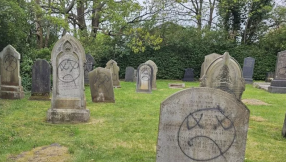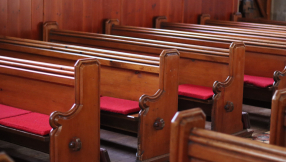Georgia churches damaged in conflict
People who escaped the conflict told Russian Ministries that the churches in the battleground town of Chinvali were assisting locals before they were damaged. Other churches in the region are also reportedly offering physical, emotional and spiritual help to those affected by the violence.
"They (the churches) got together, and they were trying to minister to the families of refugees that are pouring out of South Ossetia into North Ossetia and into other Russian provinces there," Russian Ministries senior vice president Sergey Rakhuba told Mission Network News.
"We are mobilising Christian counsellors, those who are trained and already have experience, especially after Beslan and Chechnya," he added.
Russian Ministries has workers in the affected areas, including South Ossetia.
Fierce fighting broke out between Russia and Georgia after Georgia ordered troops to stop the province of South Ossetia from seceding. In retaliation, Russia sent in forces to South Ossetia and bombed other areas in Georgia to support South Ossetia's desire to be independent from Georgia.
South Ossetia, which borders Russia, is predominantly made up of Russians. Although the province has an autonomous government, many South Ossetians still want to break away from Georgia to unite with the neighbouring Russian province of North Ossetia.
Territorial disputes have been ongoing between North and South Ossetia since the early 1990s. The region had enjoyed peace until a few years ago.
"It's a hard issue to resolve," said Rakhuba, "and it is now escalating into a political issue as South Ossetia declared its independence from both Georgia and Russia."
He requested Christians to pray for the ministry's national workers to find resources and be able to reach out to families that have lost everything.
"I am concerned that international aid might not be allowed to get to the region because of politics," said Rakhuba. "I also am praying that the authorities can come to a peaceful, diplomatic solution to this fighting."
On Tuesday, Russian President Dmitry Medvedev and French President Nicolas Sarkozy announced a six-point plan of principles for a ceasefire. Russia agreed to end all military operations and pull back troops to pre-conflict lines, while Georgia would do likewise with its forces.
Both sides would also receive free access to humanitarian aid under the provision.
The deal, however, did not resolve the issue of South Ossetia's independence.
"All we need to do now is to stop suffering, stop the death of people," Sarkozy said, according to CNN. Putting a stop to the fighting "is the most important objective".
"There are bigger problems relating to South Ossetia that we cannot resolve here," said Sarkozy, who arrived in Moscow as current head of the European Union.
Estimates place the number of people killed at about 2,000 and people displaced at 100,000.
The World Council of Churches and the Conference of European Churches issued a joint statement on Tuesday calling for an immediate ceasefire.
"The use of force in the dispute over South Ossetia and Abkhazia has cost the precious lives of civilians and soldiers, risks destabilising a fragile region, and reawakens deep fears there and far beyond," the statement reads.
The WCC and ECC urged Christians to support an international emergency appeal to support civilians caught up in the conflict launched by Action by Churches Together International.













